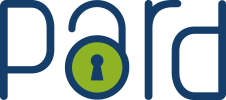
NSF Workshop on
Public Access to Research Data
Thursday, February 22 & Friday February 23, 2018
Making research data broadly available opens the scientific enterprise to citizen scientists and other experts, enhancing the potential for discovery. As an additional benefit, an effective implementation of public access to data, interpretive tools, and results could be a critical ingredient in restoring public trust in the scientific enterprise. The feasibility of publishing data does not, however, imply practicality, especially in the realms of cost, usefulness, or scientific productivity. One must in many cases “preserve” the data, software, and analysis frameworks, and potentially even some documentation in order for the public data to be useful for anyone outside the original experimental team that already possesses these resources. This could, potentially, place an inordinately large burden both on the research teams producing and preserving the data and the information resources that would store and share it. Any plan for public access must take these issues into account.
To the extent that all data preservation and access issues are, at a basic level, the same across all scientific areas, an interdisciplinary dialogue will be conducted to identify common areas of best practice, potential for shared infrastructure, and common relevant experience. All of these considerations can expedite the process for arriving at sensible policy guidelines, and, potentially, a means for data access that meet the requirements of the entire NSF scientific community while enhancing the engagement of the public in the scientific process.
The PARD Workshop will have three main points of focus:
-
The sharing of lessons learned and findings as collected from each of the scientific communities
We expect that many of the concerns and suggestions will be similar across the different communities represented by the previous workshops. Yet, disciplineJ specific distinctions will almost certainly exist. What level of commonality can be found? And, is the common ground a sufficient basis for common guidelines?
-
Linking communities with common interests in knowledge preservation and access
Each scientific community has a group of experts or specific projects that focus on data (and software) preservation and access. Moving forward, how can these groups be leveraged to provide continued information and guidance as the scientific views of open access, the needs of the public, and scientific policies evolve over time? What fruitful interdisciplinary dialogue or coordination between these groups can be established?
-
The formation of suggested requirements related to knowledge preservation and open access
Given the results of the discussion on commonality and future collaborations, what inputs might be suggested to the NSF in the following areas:
- What might general NSF guidelines for knowledge preservation and open access look like, and how might they evolve?
- What information and recommendations should be given to reviewers and review panels in order that they can appropriately evaluate the knowledge preservation and sharing plans for submitted proposals?
- What guidelines or templates should be given to individual PIs as they prepare their proposals so that they are able to succinctly describe their compliance with requirements for preservation and access?
- How should the NSF best motivate and communicate these guidelines?